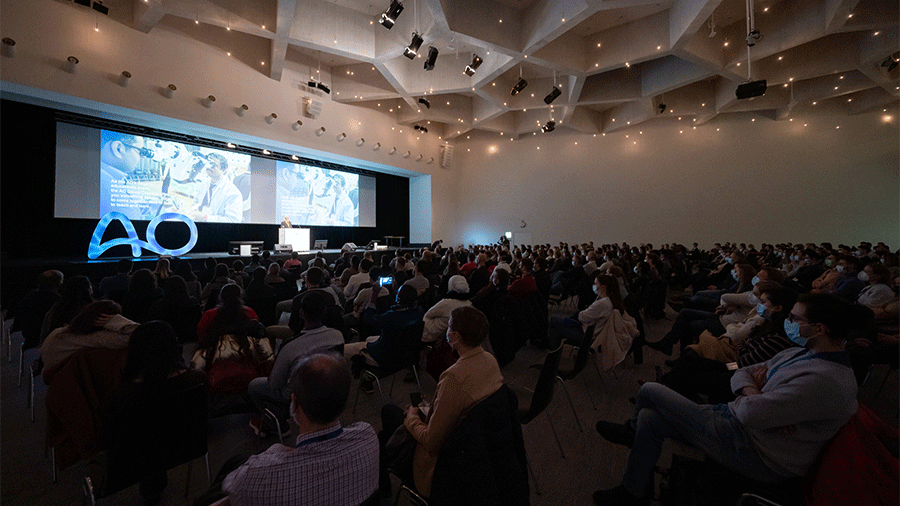The AO Davos Courses 2021 open

The AO's flagship educational event, the AO Davos Courses, kicked off on November 28, 2021. AO President Florian Gebhard welcomed the assembled participants, faculty, industrial partners, and special guests to the Davos Congress Centre after a year’s absence. This year, he explained, there are 20 world-class face-to-face courses on-site, five online courses and three webinars led by expert faculty in AO Trauma, AO Spine, AO CMF, AO VET, AO Recon, and AO Sports.
For the first time, there is a three-day advanced sports medicine course focusing on the knee as an “organ.” The course explores the interaction between all the different soft tissues and the bone in managing injuries, tacking complications, and promoting optimal function. As with all the courses on offer it includes lectures, case discussion, and practical exercises, and covers the key principles in best practice, state-of-the art diagnosis, and treatment.
As the AO Davos Courses 2021 are a hybrid event, Gebhard also gave a short introduction to the December 3–5 virtual weekend which offers participants a vast array of free learning opportunities plus a series of curated online courses, seminars, and webinars.
The president focused attention on the new educational concepts under development at the AO, including novel ways for surgeons to connect, learn, and train both face-to-face and virtually. The exciting developments he shared ranged from AO Milestones, the competency-based training and assessment program designed to improve the acquisition of surgical skills and the level of proficiency of surgical residents, to OSapp, an interactive teaching tool demonstrating biomechanical principles of fracture fixation and bone healing. He went on to talk about a new education platform using digital technologies to enhance the scope of training and track it to provide the user with feedback in the form of performance metrics as; additionally, Gebhard shared insights into how the AO is embracing robotics in the operating room as part of its vision for the whole digital patient journey.
Participants were encouraged to make the most of their time at the courses by downloading the myAO app—which brings together the fastest growing digital network of trauma and orthopedic surgeons—to connect with fellow participants and course faculty, access course programs and assessments, and receive updates on sessions and meetups.
AO Research Institute Davos (ARI) Director Geoff Richards focused on how the life cycle of multidisciplinary translational research and development (R&D) works at the AO, with teams working to solve clinical problems. These clinical problems identified by AO surgeons lead to research, development, and translation, leading in turn to advancement in surgical education concepts, and—ultimately—improvements in patient care. Richards went on provide insights into recent developments in research and innovation, such as the Biphasic Plate Distal Femur version and the AO Fracture Monitor.
Gebhard concluded his presentation with an overview of the AO Access initiative which aims to deliver diversity, inclusion, and mentorship to the AO community in order drive change.

